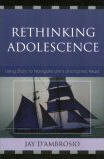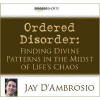 Ricardo was a tenth-grade student who had always maintained passable grades. He had a few fairly solid friendships and had a pretty active social life on the weekends. The average Friday night in autumn usually involved going to the high school football game with several of his friends. His friend Thomas had already acquired one the most coveted of all the high school trophies, a driver’s license, which enabled Ricardo and his circle to be much more mobile.
Ricardo was a tenth-grade student who had always maintained passable grades. He had a few fairly solid friendships and had a pretty active social life on the weekends. The average Friday night in autumn usually involved going to the high school football game with several of his friends. His friend Thomas had already acquired one the most coveted of all the high school trophies, a driver’s license, which enabled Ricardo and his circle to be much more mobile.
 When the football game was over, a number of other socially active students in school would find a place to “hang” and party. Ricardo, Thomas, and the others would usually join them at another student’s house (if the parents were out of town) or in a secluded spot in the woods nearby the football stadium. Alcohol was prevalent at these party locations, usually supplied by someone’s older sibling. Drugs could also be found among several of the groups that joined the revelry. It was not uncommon for these carousals to last until one or two in the morning or until the beer had been entirely consumed.
When the football game was over, a number of other socially active students in school would find a place to “hang” and party. Ricardo, Thomas, and the others would usually join them at another student’s house (if the parents were out of town) or in a secluded spot in the woods nearby the football stadium. Alcohol was prevalent at these party locations, usually supplied by someone’s older sibling. Drugs could also be found among several of the groups that joined the revelry. It was not uncommon for these carousals to last until one or two in the morning or until the beer had been entirely consumed.
Ricardo’s parents had always been clear about their position on underage drinking and drug use. It was unacceptable in their family. Ricardo’s older sister Maria had managed to successfully steer her way through high school without getting involved in either drugs or alcohol. So far, Ricardo had not partaken in the consumption of alcohol or of illegal drugs, either, but he did attend the after-game parties. He knew that his parents would disapprove of his involvement in activities such as these, even though he remained clean and sober. This often led him to lie to his parents about his postgame whereabouts. He felt guilty, but what could he do?
 To say that he was never tempted to drink a beer or do a shot of vodka would be untrue. His friends, including Thomas, would all drink and party pretty heavily, although they usually respected Ricardo’s choice not to partake. Ricardo would try to mingle with the others at the party, but without a drink in his hand he felt awkward and socially “out.” It seemed that those who were drinking had a wonderful excuse to go up to a nice-looking guy or girl and strike up a conversation. They could do the things they really wanted to do all along—and then have an excuse if it didn’t turn out well the next morning. Those who were stoned were able to talk about their current highs and past highs with great ease, as they sat around in a circle listening to the latest emo band. Ricardo was there at the scene of the party, but on another level, he felt that he was not really a part of the action.
To say that he was never tempted to drink a beer or do a shot of vodka would be untrue. His friends, including Thomas, would all drink and party pretty heavily, although they usually respected Ricardo’s choice not to partake. Ricardo would try to mingle with the others at the party, but without a drink in his hand he felt awkward and socially “out.” It seemed that those who were drinking had a wonderful excuse to go up to a nice-looking guy or girl and strike up a conversation. They could do the things they really wanted to do all along—and then have an excuse if it didn’t turn out well the next morning. Those who were stoned were able to talk about their current highs and past highs with great ease, as they sat around in a circle listening to the latest emo band. Ricardo was there at the scene of the party, but on another level, he felt that he was not really a part of the action.
 As he and his friends waited for Thomas to sober up so he could drive them home, Ricardo thought long and hard about giving in and having a beer. How bad could it be, anyway? It was just one beer offered to him in a friendly gesture by a guy he had never met. Ricardo’s friends watched closely, as he didn’t say no right away as he always had before. He felt like the cartoon character that had an angel on one shoulder and a devil on the other. The angel reminded him, “If you do this, the respect that your friends have for your previous decision to be drug and alcohol free will evaporate. Flee from this temptation! Hold tightly to your integrity!” To that the devil sang alluringly in retort, “They never respected you anyway! Do this and you will have true camaraderie! Do you see the others who hold their cans, bottles, and cups—how they laugh and carry on and live life to the full? That could be you if only you would drink and be full.”
As he and his friends waited for Thomas to sober up so he could drive them home, Ricardo thought long and hard about giving in and having a beer. How bad could it be, anyway? It was just one beer offered to him in a friendly gesture by a guy he had never met. Ricardo’s friends watched closely, as he didn’t say no right away as he always had before. He felt like the cartoon character that had an angel on one shoulder and a devil on the other. The angel reminded him, “If you do this, the respect that your friends have for your previous decision to be drug and alcohol free will evaporate. Flee from this temptation! Hold tightly to your integrity!” To that the devil sang alluringly in retort, “They never respected you anyway! Do this and you will have true camaraderie! Do you see the others who hold their cans, bottles, and cups—how they laugh and carry on and live life to the full? That could be you if only you would drink and be full.”
Ricardo drank his first beer that mild October night. To say that his life took a downhill turn from that moment on would be untrue. As the devil on his shoulder predicted, he laughed and socialized with the people around him. To the casual observer, this was nothing more than a typical weekend night at an average high school gathering, but Ricardo sacrificed some important strategic ground that night. From that point on, the devil or Siren on his shoulder had an established beachhead from which to further compromise Ricardo’s integrity.
The Real Danger.
What perils lie in succumbing to the temptation to drink alcohol or use drugs? More than most adolescents can possibly foresee. Simply observe the lives that have been ruined by substance abuse. Driving under the influence of drugs or alcohol leads to a multitude of teenage deaths each year. Yet despite the statistics and warnings, many students continue to engage in this hazardous behavior.
Drug addiction and alcoholism are on the rise. Those who are in recovery typically declare that their involvement with substance abuse began during their adolescent years. Countless problems arise from chemical dependency, including criminal behavior, an increased mortality rate, divorce, and loss of interest in life. Patterns of substance abuse can also be passed down to subsequent generations.
Some may suggest that to bring up this endless array of pitfalls after discussing Ricardo and his first beer may seem a little extreme. After all, he was a good kid and he only had one beer. But ask those for whom life has been laid waste by the scourge of drugs and alcohol, How did it start? It started with just one beer and led to alcoholism. It started with only one joint and led to harder drugs and addiction.
The little decisions that compromise our integrity as human beings can lead to devastating consequences farther down the road. Chemicals cloud the real person and bury the desire for abundant life in a murky pit of despair and confusion. Ricardo and others might not wind up in a drunk-driving accident or addicted to drugs, but understanding how precious life is, can we afford to take this gamble?
The Real Desire.
What strong desire does the temptation to engage in drinking and drug use play upon? What do Ricardo and millions of young people like him hope to find by turning to chemicals? That is where we must start to uncover the root of the temptation. Like everyone else, adolescents want to feel good. More teens than can be counted, however, do not feel good. Some are depressed, and the euphoria of the buzz or the high allows them to forget their depression momentarily. Others are hurting on the inside from soul-wounds received at the hands of a parent or a friend. They don’t want to feel this pain any more. They want to feel better, so like the Homeric Lotus-eaters, they self-medicate. The desire to feel good is common to all of humanity, but can be easily misdirected by the Siren of drugs and alcohol.
Chemicals are also able to tempt by inflaming the desire in adolescents to have companionship. Believe it or not, it seems easier for young people to strike up a conversation with someone if they are holding a drink than if they are not. Why? The drink enables them to avoid the risk of revealing who they really are. People often feel that they can only be themselves when they are drinking, and that is a sad situation. The reason is that the drink gives them something to hide behind.
If a student unveils his real likes and authentic personality when he is drinking, it allows him a way out if he perceives that others did not approve. He can always fall back and say that it was the alcohol that “made him do it.” It takes a lot more courage to be yourself when you have no excuses available if people do not like who you really are. Every time you behind a drink or a joint, it makes it more difficult to be yourself without using a chemical. Students, like everybody else, have a strong desire to be known.


















